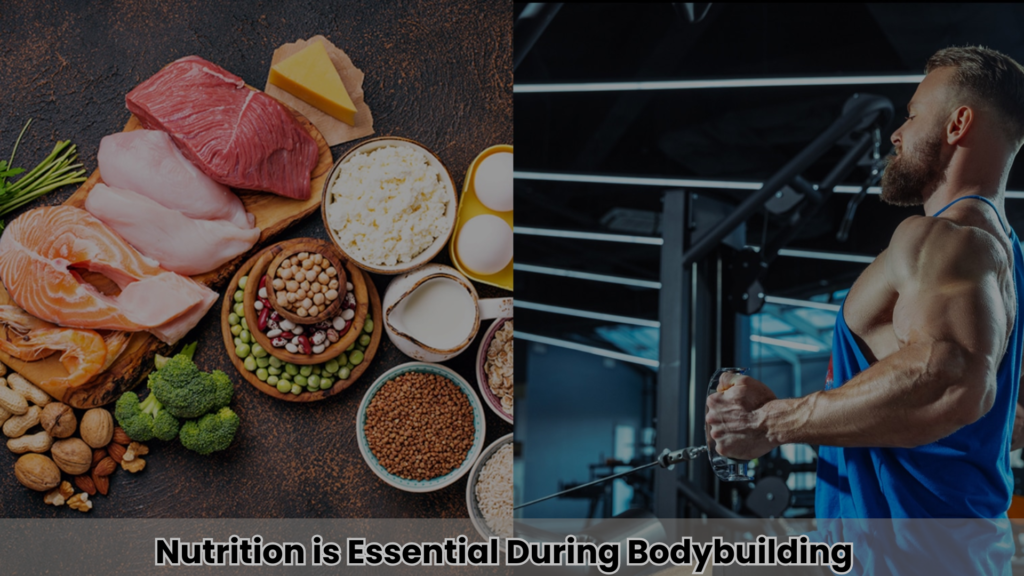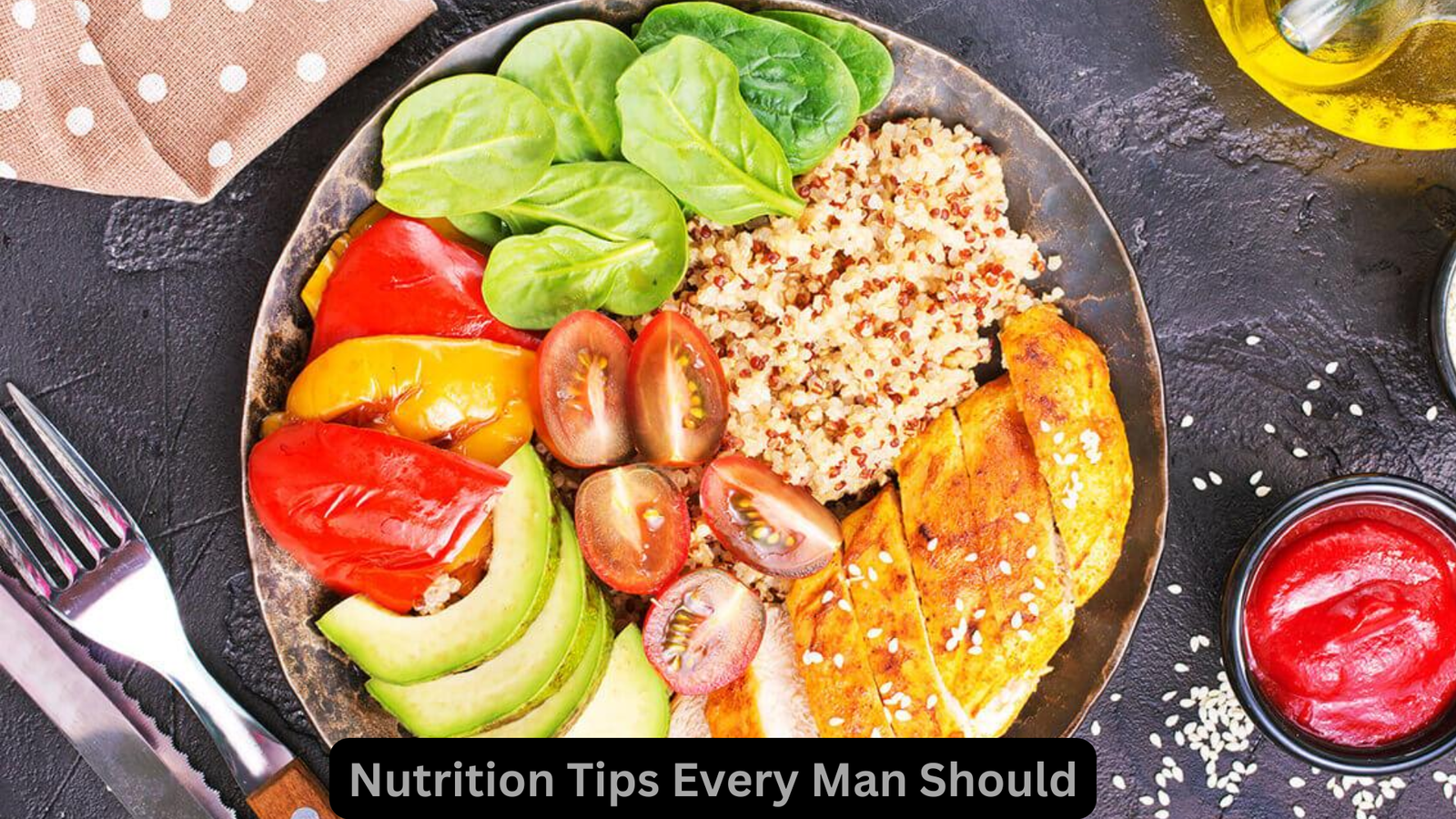Hello, fitness enthusiasts! Do you want to get your desired muscles and take your body to another level? Well, nutrition concerning bodybuilding is one of the significant success determinative factors or disastrous failure. Even if you do cardio and weight training at a fast pace, equally important is the caloric intake in the body. In this article, I will reveal the most crucial clear nutrition facts every man needs to understand. Are you ready for a strength-based life?
Let’s dive in!
Table of Contents
Nutrition is Essential During Bodybuilding

It is essential to familiarize yourself with some reasons that make nutrition for bodybuilders crucial in the Building Process. Tearing muscle fibers while working out is normal, but if you don’t feed your muscles right, they cannot rebuild and not with more strength. If your muscles do not get the right fuel, you will not have the energy to build new muscle tissue or repair existing damage.
A recent study by the Journal of the International Society of Sports Nutrition revealed that sufficient protein,, incorporated with the rightcarbohydratesohydrates, and fats, is crucial for muscle gain and repair. Therefore, depending on your training goals—whether adding mass, cutting, or anything in between—your nutrition plays a big role.
Prioritize Protein,The Building Block of Muscle
Another critical piece of advice for bodybuilding men is to consume enough protein. Protein is the fundamental muscle nutrient, as it is used to repair and regress them. During exercise, muscle fibers are broken and need protein to repair themselves.
How Much Protein Do You Need?
The recommended dietary allowance for proteins ranges from 1.6 – 2.2 gm per kg body weight. For instance, if you weigh 75 kg (165 lbs.), you should eat between 120 and 165 gm of protein daily. Research indicates that ingesting this quan ty enhances Smost effeMPS most enhances MPS when taken in multiple small portions throughout a day.
Best sources of Protein
- Many lean meats, such as Chicken breast, turkey, and lean beef
- Examples of fish include salmon, tuna together with cod.
- Eggs and egg whites
- These foods include Greek yogurt, cottage cheese, and, of course,e, milk.
- Almonds, peanuts, soybeans, chickpeas, navy beans, kidney beans, lima beans, and practically all sorts of beans.
Don’t Skip Carbs Fuel Your Workouts
It is achieved through careful selection of foods for the athlete. While muscles are made from proteins, carbohydrates are recommended fuel sources during intense training. Some of the things you use during workouts are stored carbohydrates known as glycogen; if this is lacking, one just finds themself sleepy, feeling slow, and tired.
The Importance of Complex Carbs
Because it may be a protracted period before you can refuel, you should consume foods containing complex carbohydrates. Products made from whole grains enriched with B vitamins, green vegetables, lentils, and beans ensure slow digestion of glucose, enabling one to run that extra marathon.
Correct Amount of Carbohydrates to Eat
The consumption of carbohydrates must not exceed 3-6 grams per kg of body weight, depending on the density of a training program. They also showed that the requirement for more carbohydrates increases as the training volume rises to replenish glycogen recovery stores. According to weight loss professionals, for the 80kg (176 lbs.) male bodybuilder, the estimated amount of carbohydrates to gain muscle mass and recover is 240 to 480 grams daily.
Best Carbohydrate Sources
For pulses, which include beans, lentils, and chickpeas, for seeds
Brown rice, quinoa, and oats
It includes commodities such as sweet potatoes and other root and tuber vegetables.
Whole-wheat pasta and bread
That looks like a vegetable; the fruits they allow are bananas, apples, and even berries.
Healthy Fats Fuel Your Hormones
Some people misunderstand the bodybuilding diet, although they are vital nutrients important in synthesizing hormones. Eating healthy fats partly determines a nutrient prescribed to increase the body’s muscle mass.
How much fat should be eaten?
Therefore, to help regulate hormones, one should consume 0.8 to 1 gram of fat per kilogram of body weight, either monounsaturated or polyunsaturated. Taking as little saturated fat as possible is preferable to increasing muscle density or maintaining a low body fat percentage.
Best Sources of Healthy Fats
Coconut oil This is a natural product such as nut butter
Avocados and olive oil
meat-based products like apples, carrots, and berries-area fruits and vegetables.
This group includes fish containing Omega-3 fatty acids, salmon, sardines, and mackerel.
Hydration Don’t Neglect Water Intake
Drinking water is one of the most important aspects of bodybuilding nutrition, yet many people don’t consider it a nutrient. Prolonged dehydration impairs muscle operation and prevents sound recovery. Muscles require water to contract during exercise, andhydrated muscles enable nutrition transportation to cells.
How Many Glasses of Water a Day, Anyway?
The usual advice is to consume 2 ½ to 3 liters of fluid daily, including water. Yet, this depends on body size, activity level, and weather conditions, such as heat. Some athletes may require more fluids to replace those lost through the ensuing sweating, especially when using weights or performing High-Intensity exercises.
Pro Tips for Hydration
This means you need to drink water before, during, and after the workout, though not strictly a component of the workout.
- You should ensure that you test your urine; if its coloration is light yellow or colorless, it means that the body is properly conditioned
- Add minerals, especially sodium aand potassium, sing mineral-augmented or mineral wat after exexercisinger.
- The following video explainsHyexplains hydrationnglect Water Intake
Timing Your Meals Fuel for Performance
Depending on your bodybuilding strategy, what you eat and when you eat can also affect how effectively you gain muscle. Consuming the nutrients in the right proportions at the right times will help boost performance, recovery, and muscularity.
Pre-Workout Nutrition
This should be done through a well-balanced meal about 1 – 2 hours before the exercise to give the body adequate energy for intense exercise. My major food group choice is carbohydrates, followed by protein and a small inclusion of fat. For instance, whole grain sandwiches with lean turkey and avocado are not very bulky bytes but have energy for the individual.
Post-Workout Nutrition
After exercise, muscles deteriorate as they break and thus require nutrients immediately to repair. They shouldto consume them 30- 60 minutes after completing your workout session. Protein should also be eaten in a protein shake or off a grill as chicken, and carbohydrates such as rice or potatoes should be consumed to replenish glycogen.
Supplements When Should You Use Them?
However, it is essential to remember that supplements are not a replacement for a balanced diet but a bonus on your fitness journey. Some of the most well-known and scientifically tested body-building nutritional supplements include whey protein, creatine, and branched-chain amino acids (BCAAS).
Popular Bodybuilding Supplements
- Fish Oil: is high inomega-3 fatty acid,,s beneficial for joint health, and has anti-inflammatory properties.
- Whey Protein: A quickly digested protein suitable for replenishing muscle tissue and building more of it.
- Creatine: This has been known to help add strength, power, and general workout performance.
- BCAAs: Take before and after training to stop the building of muscle tissue loss.
Get Enough Sleep and Recovery

While lifting weights, muscles are damaged and rebuilt throughout the night and while you sleep. Rest and rest are essential parts of your muscle-building trip. When the body is at rest during sleep, the muscles also benefit from the secretion of human growth hormones.
How Much Sleep Do You Need?
It is believed that sufficient rest is between seven and nine hours at night. When training, it is suggested not to exercise in the evening because this might disrupt the quality of night sleep. That is why it is desirable to make the necessary changes to help the body prepare for sleep—no light, noise, or heat.
Conclusion
So, adding the appropriate nutrition principles to your bodybuilding regimen will help you succeed in the gym. By adhering to the bodybuilding nutrition tips for men—the ideal proteins, the right carbohydrates, fats, water intake, proper meal scheduling, and supplement use where applicable—a man can build muscles faster, replace damaged tissues faster, and perform optimally.
However, it is essential to note that bodybuilding requires work, commitment, and the proper diet. If you feed your body right and concentrate on recovery, you will get better results and progress faster toward your aims. Stay on track, push yourself, and commit to the process. Nutrition is the fuel for creating the best version of yourself. Are you ready to transform your physique with proper nutrition?
FAQs
1. How many grams of protein need to consume for muscle gain?
The guideline suggests consuming 1.6–2.2 grams of protein per kilogram of body weight, depending on your training type.
2. Which carbohydrates should a bodybuilder consume?
Complex carbohydrates give sustained energy: whole grains, fruits, vegetables, and beans.
3. Can one gain muscles without having the supplement?
As a result, even though you can gain muscles by eating whole foods, they are not a full meal.
4. What is water use in nutrition,explicitlyy focusinfocusingbuilding?
Water is also vital for muscles that must regain nn strength after strain. Try to induce the drinking of more water, perhaps unique electrolyte water, after your workouts or very strenuous exercises.
5. How many hours of sleep will help me gain mass?
Sleep is crucial for muscle repair and growth; adults must sleep 7- 9 hours daily.



